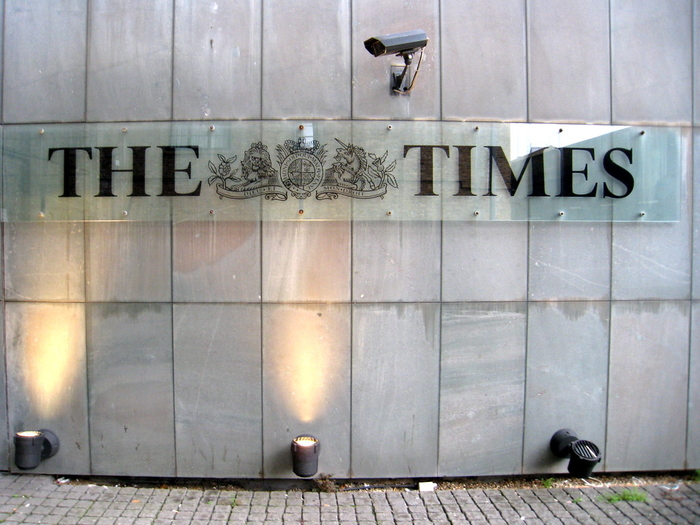An analysis in The Times by their Diplomatic Editor Roger Boyes (“Accident or assassination, Shireen Abu Akleh’s killing risks trouble in the West Bank”, May 11) provides context concerning the killing of the Al Jazeera journalist in Jenin.
Here’s the first and relevant paragraph:
The killing of Shireen Abu Akleh, an Al Jazeera journalist, has sent ripples of concern across the Middle East. In part that was down to the historic echo of trouble in Jenin, the West Bank Palestinian camp and neighbourhood that saw fierce fighting over two decades ago in the Second Intifada. At the time Palestinians put the death toll at 500 and talked of mass graves containing thousands more. Later those figures were revised down but Jenin and its fightback against Israel has established itself in the popular Arab imagination as a centre of hardy resistance. Trouble in Jenin rarely stays in Jenin.
To describe Palestinian ‘claims’ that “500” Palestinians were killed, with “thousands” more dead in “mass graves“, as a result of an IDF military operation in Jenin in 2002 – part of a larger operation in response to deadly suicide bombings, a large number of which eminated from the city – as figures which were merley “revised down” is extraordinarily misleading.
They weren’t Palestinian “claims”, but Palestinian propaganda – fake news, full stop!
It was lie that was peddled for weeks by NGOs and media outlets like the Guardian – which, in one leader, compared it to the 9/11 attacks – until the evidence contradicting those ‘claims’ was so clear that even the United Nations admited there was no “massacre”. The final death toll, as the result of house to house fighting, was 52 Palestinains killed, mostly terrorists, and 23 Israelis killed – with NO mass graves.
The “500” killed and “thousands more” in “mass graves” figures weren’t, as Boyes writes, merely “revised down”. They were shown to be an intentional and malicious lie that had no relation to reality.
The Times itself noted, in a 2020 obituary about Saeb Erekat, that the “Jenin massacre” numbers were fiction:
[Erekat] did not always offer a calming voice: that year he came under fire for claiming Israel had massacred 500 Palestinians during their assault on Jenin; later the death toll was put at about 52, mostly militants.
We contacted The Times to ask that they at least add a note to the article citing the actual death count so that readers can see for themselves what “revised downwards” means in reality. Unfortunately, we received a reply stating that editors “are satisfied that the phrase ‘revised downwards’ is accurate” and “not misleading”, so we’ll be filing a complaint with IPSO.






The Times like the the other MSM in the UK should not be treated as a serious news outlet. Agenda journalism is what they now peddle and to express satisfaction that “revised down” has the same meaning as the actual death toll shows how far from the ethical path this once proud newspaper trod it has wandered.
I think it is even worse than that: The Times and The Guardian are both”reliable” news outlets on a host of subjects — which only shows that the relentlessly biased pieces they still publish about Israel, Palestine and Palestinians ( here treating “Palestine” as both a historic geographical area and, if the Palestinians ever decide to accept the unalterable, legitimate reality of the State of Israel as a neighbor, the site of a possible national state of their own ) Jews, Zionism, the Balfour Declaration, and connected issues — is not just some blundering unprofessionalism and lack of standards.
No, it reflects something both far deeper and more superficial: having collectively hit the point of dogmatically accepting all sorts of nonsense, including vey hateful and condescending nonsense, as “established fact,” they can lazily repeat absurd versions of the ongoing problems, terrorist attacks, governmental controversies, Israeli policies vis-a-vis their own Arab citizens or really existing terrorist threats, the works, feeling confidently secure that they occupy the “moral high ground,” do not need to investigate events more deeply, etc.
The main point is they would never, ever treat another nation or set of issues like this, not for long, anyway, and not with acute and eminently reasonable critics like Adam Levick drawing their attention to serious mistakes and biased reporting.
So that makes it worse, the contrasts between other reporting and reporting on Israel and connected issues more stark, and all the more embarrassing and disgraceful that it continues.